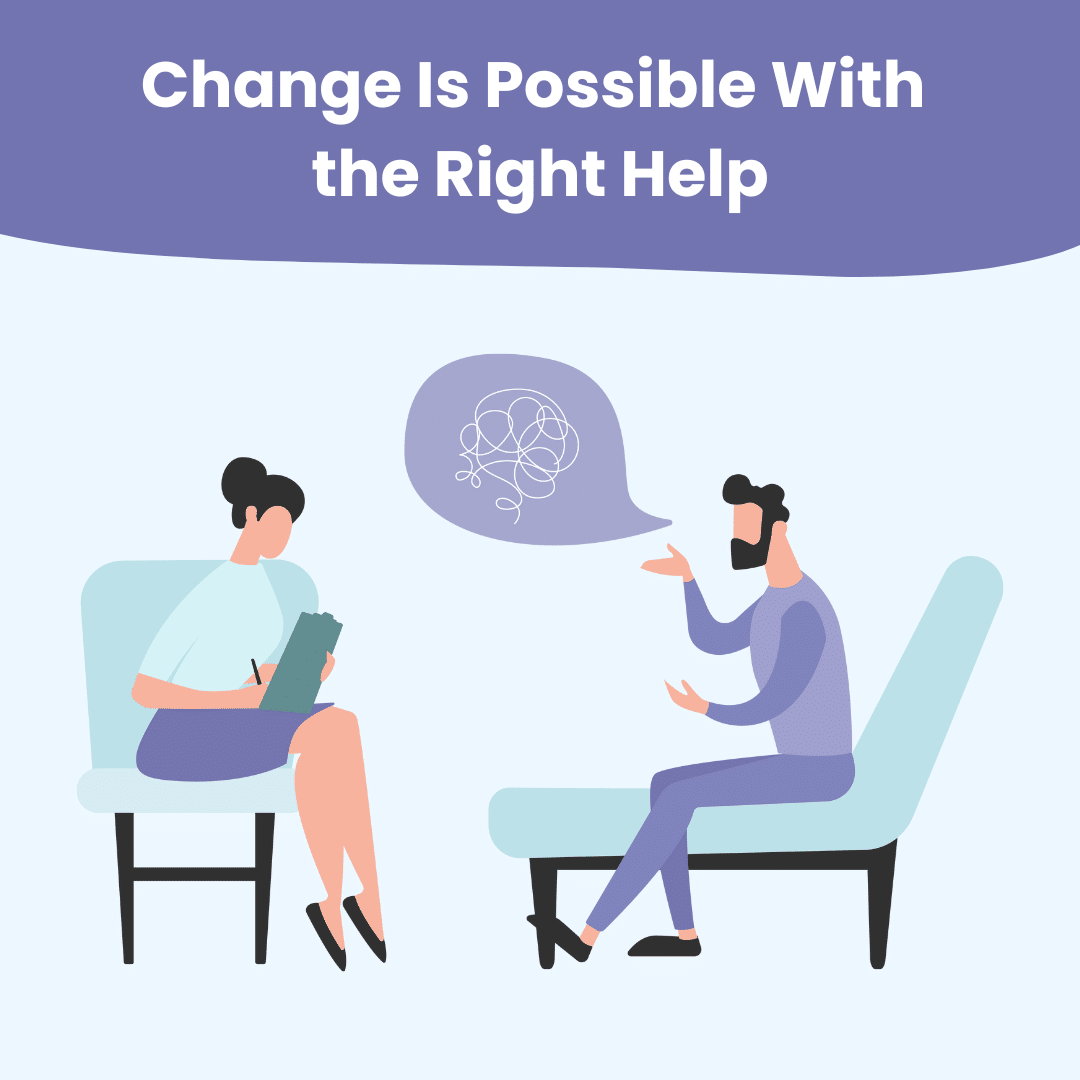
- Published on 26 May 2025
Your boyfriend forgets to do the dishes. He seems nonchalant about it.
You are angry and give him the silent treatment.
Eventually, you move on and pretend like the fight never happened. Yet, the same pattern continues for a couple of days.
Do you see yourself in the above scenario? When relationships get rocky, we may avoid the problem altogether. However, conflict avoidance leads to intimacy avoidance.
Hence, ‘now’ is always the right time to seek couples therapy. Unlike couples who wait for six years before seeking intervention, we encourage you to seek help today.
Although therapy cannot promise 100% success, you can still focus on improving relationship dynamics and building a strong foundation for a happy romantic life.
Read on to learn about all the great ways couples therapy can help you. We also share some fun techniques (like Soul Gazing) to improve the bond with your partner!
This Article Contains:
3 Things You’ll Learn in Couples Therapy
1) Setting Boundaries
What’s the first thing that comes to mind when you think of boundaries?
Most people may imagine an actual wall – something too hard and inflexible. However, setting boundaries in relationships is more like a memory foam – firm enough to support you but flexible enough to adapt to the shape of your needs.
For example, let’s say one partner needs some alone time to recover from a busy work week, while the other craves some quality time together. Without boundaries, the difference in preferences may lead to misunderstanding or unhealthy arguments.
In couples therapy, however, you may learn that it’s okay, and even necessary, to communicate the differences clearly.
Setting boundaries in relationships
Below are some steps you can follow to set boundaries with your partner:
- Identify your emotional, physical, and time boundaries. For example, are you feeling calm enough to have a conversation?
- Use ‘I’ statements to express your thoughts. For example, try saying this: ‘I feel overwhelmed when I don’t get time to myself after a stressful week. Can I join you for the movie after I get some alone time?’
- Mutually agree on boundaries rather than enforcing them on each other. Mutual boundary setting involves engaging in multiple conversations. Sometimes, talking about boundaries can get exhausting. But with time, you and your partner may learn to make it effective.
- Revisit boundaries regularly and change them based on your reactions and responses to them.
If you address boundary-setting during couples counselling sessions, you may learn about existing boundaries, where they might be missing, and how to reinforce them with kindness.
2) Learning Effective Communication
Here’s the tricky aspect of communication in relationships: We all think we communicate clearly until we’re in the middle of a heated argument.
When you’re angry in a relationship, it can be so easy to:
- Use hurtful language
- Lose control of what you’re saying and how you’re acting
- Target the other person’s vulnerability that they once trusted you with
In couples therapy, you may learn how to:
- Identify common hurdles to effective communication
- Listen actively
- Have healthy and productive arguments
- Avoid assumptions and misunderstandings
- Express your thoughts and emotions without playing the blame game (eg ‘It was your fault this happened’)
Here’s a classic conflict that many couples may face:
Your partner arrives home late but forgets to inform you. You may say, ‘You’re always late. You don’t care about me as much as you used to.’
This is how it may play out:
Your partner feels accused and may get defensive. They may reply, ‘I have my own life. Can you stop overreacting?’
Thereby, you feel hurt and unloved.
During couples therapy, you may learn to reframe your thoughts and emotions better. Like:
Expressing feelings: ‘I feel anxious when you’re late and if I don’t hear from you.’
Expressing requests: ‘Next time, if you’re running late, can you send a quick message? I will do the same when I’m late too.’

3) Developing Conflict Resolution Skills
Conflicts are inevitable. In fact, conflicts are part of any healthy relationship. Rather than trying to avoid them, we may need to learn how to solve them in a healthy way.
Couples therapy may provide specific tools to help build conflict resolution skills for couples. Some things you can learn include:
- Unlearning destructive or maladaptive habits like yelling
- Addressing narcissistic patterns in a relationship
- Improving relationship dynamics
- Recognising your and your partner’s triggers and handling them effectively
- Finding solutions together
- Learning to rely on each other after a heated argument
Here’s a specific example of how couples therapy can help with conflict resolution:
Imagine you’re planning a holiday. While you want to go all out and splurge on a luxury resort, your partner prefers a budget-friendly trip. Instead of arguing about who’s right, therapists may instead encourage you to explore:
- Your values and how they influence your decision (while you prefer adventure, your partner may prefer financial security)
- How you can compromise and find a middle ground (Perhaps mixing budget-friendly days with more relaxed ones)
The shift in this conversation alone can make the world of a difference.
Common Relationship Counselling Techniques
There are some effective counselling techniques you may learn to improve your relationship.
While these are best explored in a couples therapy session, you can still incorporate some of the steps into your daily life.
Let’s look into three interesting relationship counselling techniques in this section.
1) Soul Gazing
Soul gazing may sound like a trend on social media, but it surprisingly has positive effects on improving relationship dynamics.
The exercise itself is intense in nature and can help you connect with your romantic partner on a deeper level. Although we must warn you, it’s not for the faint of heart!
Follow the steps below to try this exercise:
- Face your partner in a comfortable seated or standing position.
- Move so close to one another that your knees or stomachs are touching. Once you’re close enough, look into each other’s eyes.
- Hold eye contact for five to eight minutes. Don’t worry; it’s not the eye-staring competition (yes, you can blink), but rather an exercise to improve intimacy.
- While sharing eye contact, try not to talk to each other. You might laugh, though, and that’s completely normal!
- If the silence is uncomfortable, play a song and try to maintain eye contact until the song ends.

2) The Miracle Question
The miracle questions are part of an approach called solution-focused brief therapy. The counselling technique is a great way for you to explore:
- What your and your partner’s future would look like
- What does your idea of a healthy relationship look like
- What kind of a life you and your partner would want for yourselves and for each other
We all struggle in a relationship. But what makes it harder is not knowing what our couple’s goals actually are – asking the ‘Miracle Questions’ can be an effective way to discover this.
Two major benefits of miracle questions include:
- Exploring mutual dreams and desires
- Learning about each other’s needs and preferences
Here’s a prompt to help you get started. Ask this question to each other:
‘Tonight, while you slept, maybe a miracle happened. You wake up tomorrow and discover that you’re living the life you’ve always dreamed of. Now, what are some of the things you notice first that indicate that your life has gotten better?’
On the one hand, if the question is explored within the context of couples therapy, the therapist can probe deeper into the narrative.
On the other hand, if you are trying this exercise without the guidance of a couples therapist, try not to dig deeper into each other’s stories. Instead, use this discussion as an opportunity to get to know your partner better!
3) Weekly Couples Meeting
Are you and your partner busy with work, a bustling social life, and multiple obligations? If yes, this exercise might be a great way to connect.
You can make space for each other to interact as adults (no kids or friends) and with full focus (avoiding distractions like phones or TVs).
Schedule a ‘weekly couples meeting’ for a minimum of 30 minutes once a week. During this time, talk about:
- How you both are doing emotionally and mentally
- Any unresolved arguments
- Grievances you may have about each other
- Emotional or sexual needs that are not being met
Initially, it may feel awkward and formal. However, the idea is to take some uninterrupted time out for each other. The conversation itself can be informal and free-flowing.
Start the conversation with questions like:
- How do you feel about our relationship today?
- Do you want to talk about any recent argument, in particular?
- How can I make you feel more loved and supported?
The answers to these questions can lead to a productive discussion about yourselves and your relationship.
How to Get Started With Couples Therapy
If you’re convinced to start couples therapy but still feel intimidated about the process, this section can give you some clarity.
Let’s explore what actually happens in a couples counselling session.
What to Expect From Couples Counselling Sessions
The first session
The first session is all about:
- Building rapport
- Getting to know your couples Therapist
- Setting realistic couple goals
- Setting short-term and long-term therapy goals
- Laying out your past and current experiences
The session may involve a combination of storytelling and setting the pace and tone for future sessions.
The following sessions
After you and your partner are comfortable moving on, the couples therapy sessions may involve:
- Identifying negative interaction patterns
- Practising new skills like setting boundaries in relationships
- Working on therapy homework in between sessions
Your therapist will create a safe, non-judgmental space for intimate and vulnerable conversations.
Finding the Right Therapist
Every therapist may have a different style and background. Hence, finding the right therapist for your needs may take some time and effort.
Look for a therapist who:
- Makes you and your partner feel safe and supported
- Does not take sides in a relationship conflict
- Takes feedback seriously and incorporates it into the couples counselling sessions
At Talk Your Heart Out (TYHO), we have a large pool of Therapists who offer couples therapy. Find help for:
- Relationship conflicts
- Boundary setting in relationships
- Conflict resolution
- Marriage preparation
Key Takeaways
Here’s a secret: Couples therapy is for you even if you don’t experience any major crisis in your relationship.
Professional support is for anyone who wants to better understand their partner and improve their bond.
Through therapy, you learn:
- How setting boundaries in relationships protects your well-being
- Why communication in relationships is about more than talking
- That conflict resolution for couples is possible when approached with curiosity
- How relationship counselling techniques like soul gazing or weekly check-ins build intimacy
Most importantly, you learn that love isn’t just a feeling; it’s a skill.
And like any skill, it can be learned, practised, and improved with the right tools and support. Book a couples therapy session at TYHO.

Related Articles
Latest Articles
Recent Posts
- Understanding Employee Assistance Programs in Singapore (And Why Your Company Needs One)
- A Therapist’s Guide to Setting Boundaries with Parents
- Anger Management in Singapore: Top 6 Benefits
- Individual vs Group Counselling in Singapore: What’s Right for You?
- Thinking of Switching Your Therapist in Singapore? Read This First



